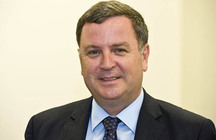Mel Stride – 2022 Speech on Energy Price Capping
The speech made by Mel Stride, the Conservative MP for Central Devon, in the House of Commons on 8 September 2022.
I rise broadly to welcome these measures. We know that we live in terribly difficult times. Yesterday the Treasury Committee took evidence from the Governor of the Bank of England and other members of the Monetary Policy Committee, and the point was made that the impact of the energy price rises on households is about four times that which occurred in the 1970s. These are truly frightening times, and I am pleased that my right hon. Friend the Prime Minister has come forward with such a bold package of measures for consumers and, critically, for businesses over the next six months, with a review after three months. I was pleased to see the Bank of England liquidity facility for energy businesses totalling £40 billion, which I think will be important for the functioning of the marketplace, as well as the critical commitment to review the way that the pricing of our electricity is determined, whether in relation to gas or to the underlying costs of alternative means of energy production.
I also want to focus briefly on the macroeconomic issues, which are easy to overlook. This is a huge intervention. The Prime Minister detailed that the Chancellor will come forward with costings at the emergency fiscal event that he is soon to present to the House. Alongside the tax reductions that have been mooted, plus other pressures on the public finance, it means that debt will almost certainly increase, as will the deficit. It has been stated that inflation will be assisted by these measures—that is true; inflation is just a measures of price rises relative to a previous period at a particular point in time. Although downward pressure on the consumer prices index from these freezes will be positive, it will be a stimulus to the economy and, through time, net inflation may increase. That will require a response from our central Bank, which might see interest rates increase in the more medium term, with increased servicing costs for our debt. We must see this very much in the round, and that is where the debate on the windfall tax should at least be considered. The Treasury Committee will be looking at that in some detail.
My final point, in my remaining 30 seconds, is that when it comes to the emergency fiscal event, it is critical that we have an Office for Budget Responsibility independent forecast to take into account all those issues—the great uncertainty we are talking about, and the huge fiscal interventions for which the costings have not yet been presented to us. We must see what the impact of that will be on the public finances in order to reassure the markets.

